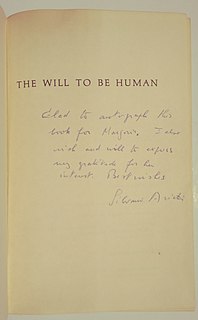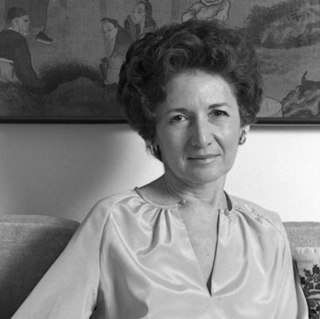A Quote by Asger Jorn
During every really creative act, the artist finds himself homeless. To overcome this state he has to call up his last reserves of strength.
Related Quotes
A Godly leader ... finds strength by realizing his weakness
finds authority by being under authority
finds direction by laying down his plans
finds vision by seeing the needs of others
finds credibility by being an example
finds loyalty by expressing compassion
finds honor by being faithful
finds greatness by being a servant
The fact, however, to which I want to call attention is that the master of Judo never relies upon his own strength. He scarcely uses his own strength in the greatest emergency. Then what does he use? Simply the strength of his antagonist. The force of the enemy is the only means by which that enemy is overcome.
God must act and pour himself into you the moment he finds you ready. Don't imagine that God can be compared to an earthly carpenter, who acts or doesn't act, as he wishes; who can will to do something or leave it undone, according to his pleasure. It is not that way with God: where and when God finds you ready, he must act and overflow into you, just as when the air is clear and pure, the sun must overflow into it and cannot refrain from doing that.
The very act of faith by which we receive Christ is an act of the utter renunciation of self, and all its works, as a ground of salvation. It is really a denial of self, and a grounding of its arms in the last citadel into which it can be driven, and is, in its principle, inclusive of every subsequent act of self-denial by which sin is forsaken or overcome.
In bullfighting there is an interesting parallel to the pause as a place of refuge and renewal. It is believed that in the midst of a fight, a bull can find his own particular area of safety in the arena. There he can reclaim his strength and power. This place and inner state are called his querencia. As long as the bull remains enraged and reactive, the matador is in charge. Yet when he finds his querencia, he gathers his strength and loses his fear. From the matador's perspective, at this point the bull is truly dangerous, for he has tapped into his power.
A happy but miserable state in which man finds himself from time to time; sometimes he believes he is happy by loving, then suddenly he finds how miserable he is. It is all joy, it sweetens life, but it does not last. It comes and goes, but when it is active, there is no greater virtue, because it makes one supremely happy.








































